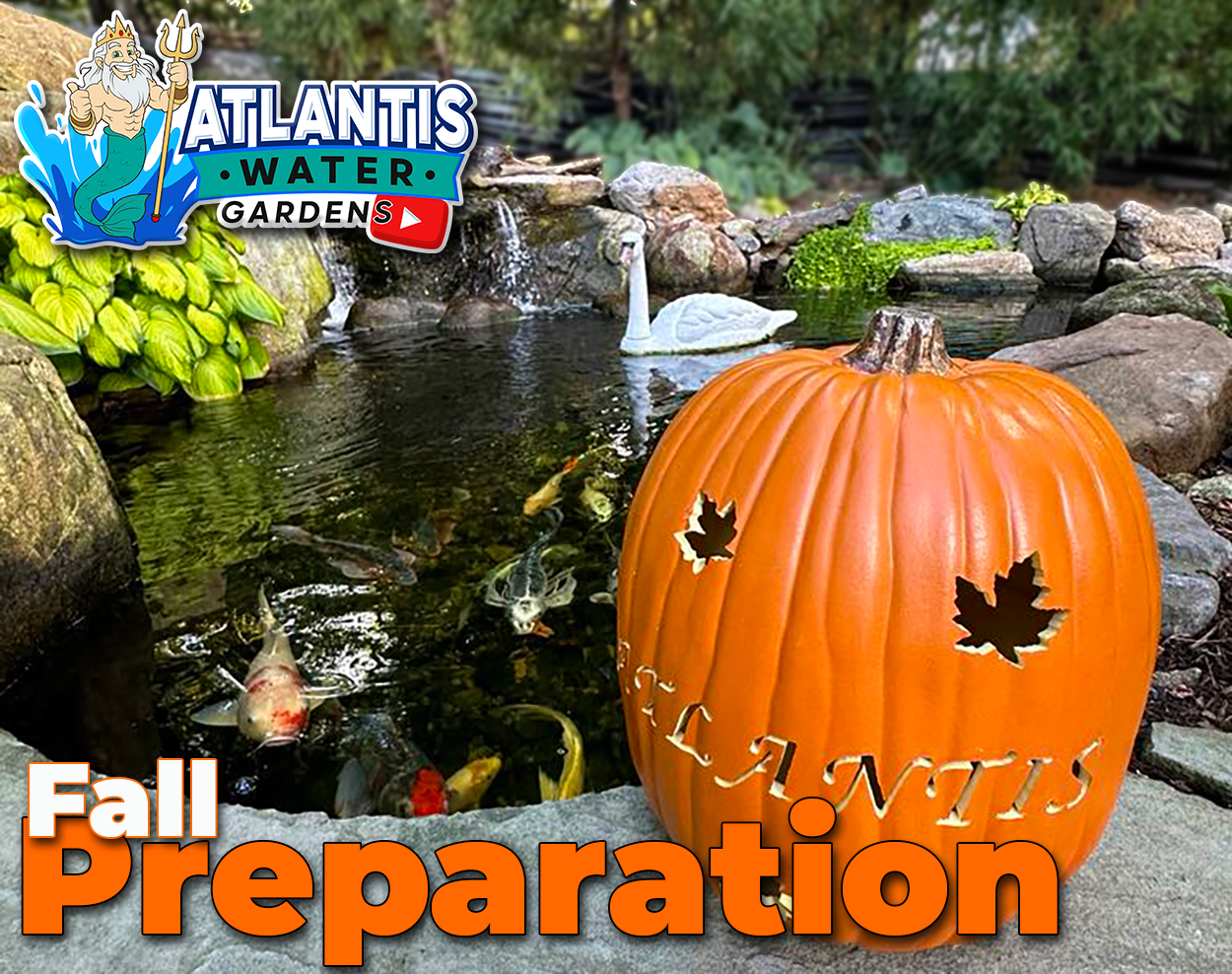How can I do fall pond maintenance in New Jersey? 7 easy steps
Focus Keyphrase: fall pond maintenance in New Jersey
TL;DR 🌿
The best fall pond maintenance in New Jersey includes netting out leaves, trimming plants, cleaning filters, dosing cold-water bacteria, checking aeration, and adjusting fish feeding before the first frost.
Why fall pond prep matters in NJ 🍂
Crisp mornings, shorter days, and swirling leaves look beautiful across Morris, Essex, and Union counties. But for your pond, this season is make-or-break. Leaves, decaying plants, and dropping water temps can quickly overwhelm your ecosystem.
Doing proper fall pond maintenance in New Jersey now means clearer water, healthier fish, and less work when spring returns.
7 steps to get your pond fall-ready
1. Net and skim the leaves 🍁
Leaves are the biggest culprit in fall. Cover your pond with netting before peak color. Skim daily to prevent buildup. This simple fall pond maintenance in New Jersey step avoids sludge and protects water quality.
2. Trim plants back ✂️
Cut hardy plants down to just above the waterline. Remove fading lilies or floating plants. Less decay = less muck.
3. Clean filters and vacuum light debris
Rinse mechanical pads in pond water (never tap). Swish bio-media gently to keep bacteria alive. If you spot a sludge layer, vacuum lightly, then top off water.
4. Add cold-water bacteria & test basics 🧪
As temps drop, switch to cold-water bacteria. Test weekly for:
-
Ammonia = 0 ppm
-
Nitrite = 0 ppm
-
pH = stable 7–8.5
-
KH = 100–150 ppm
This step keeps your fall pond maintenance in New Jersey balanced.
5. Shift fish feeding with temps 🐟
When water’s 55–60°F, switch to wheat-germ food. Below 50°F, stop feeding. Fish digest slower in the cold, and uneaten food fuels waste.
6. Check aeration, de-icer, and pumps
Clean air stones, test the de-icer, and make sure your pump is running smoothly. You’ll need good circulation to keep oxygen flowing all winter.
7. Decide on your waterfall 💧
If your skimmer collects tons of leaves, consider shutting the falls down and bypassing the pump. Otherwise, keep it running—but clean pads often. Either way, record your fall pond maintenance in New Jersey settings for winter.
Quick checklist ✅
-
Pond net installed
-
Plants trimmed
-
Filters rinsed
-
Cold-water bacteria added
-
Water tested & buffered
-
Fish feeding adjusted
-
Aeration & de-icer tested
Bonus tip: after storms 🌧️
Nor’easters and windy rainstorms can undo a week of prep. After heavy weather, skim again, check your filter pads, and re-dose beneficial bacteria if needed.
Need a hand?
If your schedule’s packed, we can take care of fall pond maintenance in New Jersey for you—seasonal cleanouts, filter refreshes, and fish health checks.
👉 Book a fall service now so you can enjoy the season worry-free.
Related reads 📚
FAQ 🤔
Do you provide Koi Pond Maintenance Passaic County in the fall?
Yes—fall visits include netting, trimming, water testing, and prep for winter. It complements your fall pond maintenance in New Jersey routine.
Can you handle Koi Pond Repair Morris County before winter?
Definitely—we check liners, pumps, and plumbing so freezes don’t turn minor leaks into major problems.
Where can I buy Pond Supplies Short Hills for fall prep?
We carry nets, cold-water bacteria, test kits, and de-icers—everything for successful fall pond maintenance in New Jersey.
Looking for more great tips, tricks and quality content? Check out our YouTube Channel!
🌳 What can I do to clear my pond water fast in Morris County?
If you live in Morris County and want fast results, a UV filter, a dosing system, and aggressive plant coverage will help clear your pond naturally—often within a week or two. Be sure to skim surface pollen regularly in peak season.
👉 See how we help with pond maintenance in Morris County
🌼 Do I need different plants for a pond in Hunterdon County?
Not necessarily—but choosing hardy varieties like hornwort, cattails, and water lettuce can give you the upper hand. In rural areas of Hunterdon County, where pollen and runoff are more intense, aquatic plants play a major role in keeping the ecosystem balanced.
